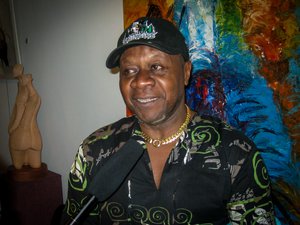[Translate to englisch:] IC Immobilien Gruppe vermietet 2015 ingesamt 80.000 Quadratmeter (IC Immobilien Holding AG)
Edit Public Technologies 19 Apr 2016COMET Holding AG begibt eine 5-jährige Obligationenanleihe (Comet Holding AG)
Edit Public Technologies 31 Mar 2016
(Source. Comet Holding AG) NOT FOR RELEASE, PUBLICATION OR DISTRIBUTION IN THE UNITED STATES AND FOR NONE 'QUALIFIED INVESTORS' IN THE EUROPEAN ECONOMIC AREA (THE 'EEA') OR ANY OTHER JURISDICTION WHERE TO DO SO WOULD CONSTITUTE A VIOLATION OF THE RELEVANT LAWS OF SUCH JURISDICTION ... Der Erlös soll im Zusammenhang mit dem geplanten Ausbau am Hauptsitz in Flamatt verwendet werden. Die Bank Vontobel AG agiert als Lead Manager ... April 2016....
Eesti välismeedias 19. november 2015 - 25. november 2015 (Ministry of Foreign Affairs of the ...
Edit Public Technologies 25 Nov 2015
(Source. Ministry of Foreign Affairs of the Republic of Estonia) EUOBSERVER. Dutch MEP Van Baalen elected Liberal party president. 23.11.2015. Dutch MEP Hans van Baalen was elected on Saturday as president of the Aliiance of Liberals and Democrats in Europe (Alde) at the party's Budapest congress. Van Baalen received 296 votes from delegates ... Sama ... Eszter Zalan ... Col ... Das führt die Organisation auf den Ausbau der frühkindlichen Bildung zurück....
Eesti välismeedias 01. oktoober 2015 - 07. oktoober 2015 (Ministry of Foreign Affairs of the ...
Edit Public Technologies 08 Oct 2015
(Source. Ministry of Foreign Affairs of the Republic of Estonia). LNG WORLD NEWS. Finland, Estonia to apply for EU funds for Balticconnector project. 02.10.2015 ... A State-owned company will be established, whose mandate will be to implement Finland's part of Balticconnector ... 02.10.2015 ... Samal teemal ... Mauritius ... 30.09.2015 ... ' ... Und auch nicht dafür, dass sie die estnische Regierung beim weiteren Ausbau des Schulsystems in Richtung e-School berät....
Honeywell setzt auf Elektrifizierung für Zukünftige Turbolader-Technologie
Edit World of Renewables 15 Sep 2015
Angesichts immer strengerer weltweiter Vorgaben sieht Honeywell die Chance zum Ausbau seiner Führungsposition durch Neudefinition der Rolle von Turboladern mit Innovationen im Bereich elektrische Turbo-Aufladung FRANKFURT, 15. September 2015 /PRNewswire/ -- Honeywell.. ...read more Read more here. ... ....
TopUp Consultants eröffnet ein neues Büro in Frankfurt
Edit Pressat 19 Aug 2015
Wednesday 19 August, 2015 ... Damit reagierte das Unternehmen auf die steigende Nachfrage nach seinen Produkten und Dienstleistungen ... So ist gewährleistet, dass die von TopUp gebotenen Produkte und Dienstleistungen auch vollkommen verstanden werden.Das neue Büro ist das erste von TopUp Consultants in Mitteleuropa und dient als Basis zum weiteren Ausbau der Klientel in der CEE-Region ... Tel. +49 (0) 69 9675 9150 ... www.TopUpConsultants.de ... Xing....
Aurubis attains very good nine-month results - excellent results expected for fiscal year 2014/15 (Aurubis ...
Edit Public Technologies 13 Aug 2015
(Source. Aurubis AG). The Aurubis Group (Aurubis) generated very good operating earnings before taxes (EBT) of € 261 million in the first nine months of fiscal year 2014/15 (previous year. € 75 million) ... 4.2 %) ... Die wesentlichen Inhalte unserer Strategie sind der Ausbau unserer führenden Marktposition als integrierter Kupferhersteller, die Nutzung von Wachstumschancen und der verantwortliche Umgang mit Menschen, Ressourcen und der Umwelt....
Employment study published at last (BWE – Bundesverband WindEnergie eV)
Edit Public Technologies 29 Jul 2015
(Source. BWE – Bundesverband WindEnergie eV). It was a long time coming. around nine months behind schedule, Germany's Ministry for Economic Affairs and Energy (BMWi) has finally published the study "Beschäftigung durch erneuerbare Energien in Deutschland. Ausbau und Betrieb, heute und morgen" (Employment effects of renewable energies in Germany. expansion and operation, today and tomorrow) ... Its key message ... distributed by ... (noodl....
Aurubis generates very good results in the first half of fiscal year 2014/15 (Aurubis AG)
Edit noodls 12 May 2015
(Source. Aurubis AG) Aurubis generates very good results in the first half of fiscal year 2014/15 ... € 27 million) ... Operating return on capital employed (ROCE) reached 15.8 % (previous year. 1.7 %) ... Outlook ... a ... Die wesentlichen Inhalte unserer Strategie sind der Ausbau unserer führenden Marktposition als integrierter Kupferhersteller, die Nutzung von Wachstumschancen und der verantwortliche Umgang mit Menschen, Ressourcen und der Umwelt....
- 1
- 2
- 3
- 4
- 5
- Next page »








